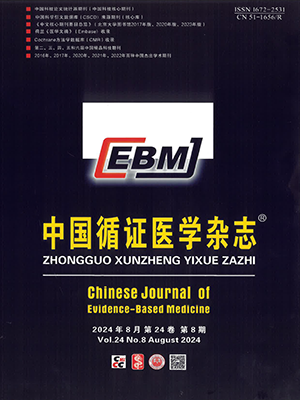Public anticipation of clinician graduates in the new era of healthy China: A questionnaire-based cross-sectional study
X. Zheng, Xinran Sun, Q. Zhang, Q. Liu, Y. Yuan
求助PDF
{"title":"Public anticipation of clinician graduates in the new era of healthy China: A questionnaire-based cross-sectional study","authors":"X. Zheng, Xinran Sun, Q. Zhang, Q. Liu, Y. Yuan","doi":"10.7507/1672-2531.202006087","DOIUrl":null,"url":null,"abstract":"Objective The purpose of this study was to offer new suggestions for current clinician training under the guidance of the Healthy China 2030 policy by investigating the patients' needs. Methods This study surveyed adult outpatients from West China Hospital of Sichuan University between March and July, 2019 and February and May, 2020 by self-constructed questionnaires to investigate the expectation and requirements of outpatients towards medical professionals. Results A total of 430 questionnaires were distributed, and 402 of them (93.5%) were collected and included in this study. All questionnaire respondents expected that medical graduates should have outstanding expertise and ethical standard. The majority valued qualities such as physical and mental health (90.05%), a bachelor's degree or higher (73.88%), knowledge on disease control and prevention (61.69%), knowledge on health care (91.29%), ability to continuously update current knowledge (70.65%), and excellent communication (71.14%) and teamwork (62.44%) skills. In addition, most patients expected that new health care providers to possess humanitarianism and professional dedication relevant traits, and could improve diagnoses and treatments via research activities. Patients' demand for abilities such as disease control and prevention, health care, and integrative cooperation between traditional Chinese medicine and modern medicine significantly increased after the COVID-19 pandemic (P<0.05). Conclusions Nowadays, to provide health care services which meet the needs of the public, clinicians are expected to have qualities such as outstanding expertise, humanity, research and knowledge-updating skills, disease control and prevention, health care management, and capability to take the advantages of traditional Chinese medicine and modern medicine. © 2021 West China University of Medical Science. All rights reserved.","PeriodicalId":39892,"journal":{"name":"中国循证医学杂志","volume":"21 1","pages":"139-144"},"PeriodicalIF":0.0000,"publicationDate":"2021-01-01","publicationTypes":"Journal Article","fieldsOfStudy":null,"isOpenAccess":false,"openAccessPdf":"","citationCount":"0","resultStr":null,"platform":"Semanticscholar","paperid":null,"PeriodicalName":"中国循证医学杂志","FirstCategoryId":"3","ListUrlMain":"https://doi.org/10.7507/1672-2531.202006087","RegionNum":0,"RegionCategory":null,"ArticlePicture":[],"TitleCN":null,"AbstractTextCN":null,"PMCID":null,"EPubDate":"","PubModel":"","JCR":"Q4","JCRName":"Medicine","Score":null,"Total":0}
引用次数: 0
引用
批量引用
Abstract
Objective The purpose of this study was to offer new suggestions for current clinician training under the guidance of the Healthy China 2030 policy by investigating the patients' needs. Methods This study surveyed adult outpatients from West China Hospital of Sichuan University between March and July, 2019 and February and May, 2020 by self-constructed questionnaires to investigate the expectation and requirements of outpatients towards medical professionals. Results A total of 430 questionnaires were distributed, and 402 of them (93.5%) were collected and included in this study. All questionnaire respondents expected that medical graduates should have outstanding expertise and ethical standard. The majority valued qualities such as physical and mental health (90.05%), a bachelor's degree or higher (73.88%), knowledge on disease control and prevention (61.69%), knowledge on health care (91.29%), ability to continuously update current knowledge (70.65%), and excellent communication (71.14%) and teamwork (62.44%) skills. In addition, most patients expected that new health care providers to possess humanitarianism and professional dedication relevant traits, and could improve diagnoses and treatments via research activities. Patients' demand for abilities such as disease control and prevention, health care, and integrative cooperation between traditional Chinese medicine and modern medicine significantly increased after the COVID-19 pandemic (P<0.05). Conclusions Nowadays, to provide health care services which meet the needs of the public, clinicians are expected to have qualities such as outstanding expertise, humanity, research and knowledge-updating skills, disease control and prevention, health care management, and capability to take the advantages of traditional Chinese medicine and modern medicine. © 2021 West China University of Medical Science. All rights reserved.
健康中国新时代公众对临床医师毕业生的期望:一项基于问卷的横断面研究
目的通过对患者需求的调查,为健康中国2030政策指导下的临床医师培训提供新的建议。方法采用自编问卷对2019年3月至7月和2020年2月至5月在四川大学华西医院就诊的成年门诊患者进行调查,了解门诊患者对医疗专业人员的期望和要求。结果共发放问卷430份,回收402份(93.5%)纳入本研究。所有被调查者都期望医学毕业生具有杰出的专业知识和道德标准。大多数人看重的素质包括身心健康(90.05%)、本科及以上学历(73.88%)、疾病预防控制知识(61.69%)、卫生保健知识(91.29%)、不断更新现有知识的能力(70.65%)、优秀的沟通能力(71.14%)和团队合作能力(62.44%)。此外,大多数患者期望新的医疗服务提供者具有人道主义和专业奉献的相关特征,并能通过研究活动改善诊断和治疗。新冠肺炎疫情后,患者对疾病预防控制、卫生保健、中西医结合配合等能力的需求显著增加(P<0.05)。结论当前,要提供满足公众需求的卫生保健服务,临床医生需要具备优秀的专业技能、人文素质、研究和知识更新能力、疾病预防控制能力、卫生保健管理能力以及中西医结合的能力。©2021华西医科大学。版权所有。
本文章由计算机程序翻译,如有差异,请以英文原文为准。


